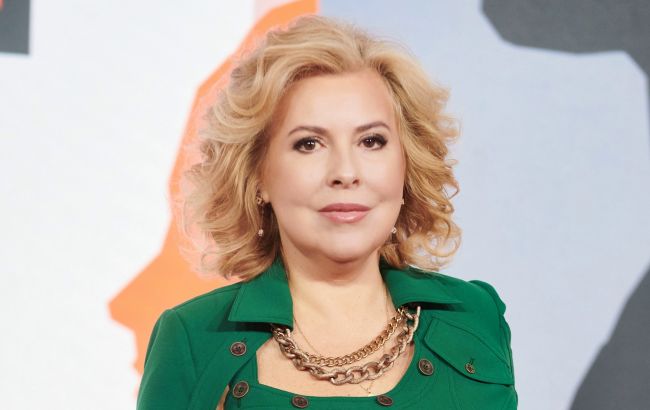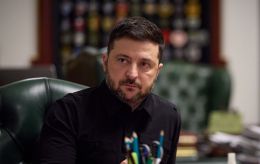Olena Derevianko: The criterion of PR success is its strategic effectiveness
 Photo: Olena Derevianko (PRNext Forum press service)
Photo: Olena Derevianko (PRNext Forum press service)
Ahead of April 3, when the main annual event of the PR industry — the XXII International Forum PRNext — will take place, Olena Derevianko, chair of the event’s organizing committee and a guru of Ukrainian PR, co-founder of the PR-Service Agency and vice president of the Ukrainian PR League, spoke to RBC-Ukraine about the current state of the industry.
What are the main trends in the PR services market for 2024–early 2025?
— Our market is generally aligned with global economic trends. The challenges of wartime affect everyone: threats to business assets and staff, reduced demand, financial constraints, and a shortage of qualified personnel. Of course, there are areas of growth, but only a deeply cynical person would call them “business opportunities.” From an economic science perspective, I would describe the general trend as the introduction of organizational innovations for survival — driven by a lack of resources or reputational risks that demand attention.
On one hand, client businesses want affordable creative solutions, including high-quality visuals and social media engagement. Additionally, support for the Armed Forces and other social initiatives also needs proper PR backing. On the other hand, amid ongoing systemic crisis, companies face their own specific challenges and need robust communications support — hence a resurgence in demand in those areas.
Is the PR industry still following the same trajectory since the start of the full-scale war, or have things changed?
— So far, yes. Large economic systems are inherently slow to change, and the new challenges Ukraine faced earlier this year haven’t yet produced noticeable shifts in the business segment. In the political sphere, activity has increased since the autumn, but a consistent upward trend hasn’t emerged. The NGO and international social program segment looks less clear — and less optimistic — though compensatory mechanisms may ease the perceived decline.
Have clients’ needs for PR services changed over the past three years? Any new requirements compared to the early 2020s?
— 2020 was the year of the pandemic, which we now almost recall with nostalgia — like a bulletproof vest under a COVID mask from an old joke. At that time, social activity focused on combating COVID-19, organizing online events, and motivating employees under lockdown. Businesses had tighter budgets, demanded cost-effective creativity, and turned to emerging influencers. TikTok began to rise in popularity. That’s when many of today’s client expectations were formed — both for agencies and in-house teams.
Since the start of the full-scale war, speed and international reach have become even more critical. Many companies relocated or aimed to expand into foreign markets, and that shaped their PR demands.
What role do PR specialists play in companies’ communication strategies today?
— Two opposite trends are emerging. Companies with a systematic approach to reputation management before the war are now empowering PR leaders, heeding their advice, and reaping reputational rewards. These are the same companies that tend to win our national Reputation ACTIVists ranking, which we will award for the 10th time at PRNext.
But others see PR as a dispensable expense and reduce it to a technical back-office function, stripping it of strategic value. In doing so, they narrow their options and discard an essential crisis buffer. This cycle repeats after every global economic downturn — and now, it’s worsened by the illusion that social media alone can replace structured PR. Many companies have already paid the price for that illusion by unintentionally triggering reputational crises.
How have PR and marketing budgets changed over the past three years? What factors influence PR campaign budgets most?
— A detailed answer would require a proper research study. Financial matters are sensitive. But intuitively, I'd say large businesses have cut budgets by 10–20%, while small and medium enterprises may have slashed them two- or threefold.
There are always two key factors. First: how much leadership values reputation and is willing to invest in it. Second: the internal "reputation manager's" ability to advocate for strategic communications and demonstrate its value for business outcomes.
What impact are technologies like AI and automation having on the PR industry?
— AI and automation have serious potential to transform the industry by streamlining processes and eliminating routine tasks. But so far, their most visible result has been an influx of generic, low-quality content — because AI reflects the quality of human input.
PRNext (formerly PR-Festival) appeared around the same time PR became institutionalized in Ukraine. What role does the event play now?
— PRNext is regarded as the industry’s main event — not just because of its history, but because it includes the awarding of the “Reputation ACTIVists.” We also strive to stay ahead of the curve, discussing unconventional topics and featuring new, promising speakers. It’s crucial for our team that the event is always engaging and can surprise our guests in some way.
What are the key success criteria for a PR campaign today?
— I have my own specific metric for PR success. Yes, efficiency indicators — reach, CPC, ROI — matter. But strategic effectiveness is more important: the ability to inspire others to act as voluntary ambassadors for your brand. As I always say, “Success is when the right message about you appears in the public space without your direct involvement.”
What are three key traits of a successful PR agency in Ukraine today?
-
Loyal clients we’ve worked with for years.
-
A full-time team big enough that we don’t need to scramble for staff when new clients come in.
-
Thought leadership — the ability to generate meaningful ideas for the market.
What are the most promising PR directions in Ukraine for 2025?
— I sincerely hope that, in addition to the areas already mentioned, a new domain will emerge: PR for large-scale investment projects in the RECOVERY category — i.e., Ukraine’s post-war reconstruction. There's not much hope yet, but thought creates reality, so we must think optimistically and with discipline.
What can we expect in the Ukrainian PR industry over the next 5–10 years? How should agencies and clients prepare?
— In today’s circumstances, a 5–10 year outlook feels like a stretch. But generally speaking:
First, the recovery phase will begin — bringing new opportunities.
Second, there will be a reevaluation of social responsibility, and clients will split into those who prioritize outcomes and those who value values.
Naturally, those who choose the middle path will succeed.
And third, AI will reshape civilization — and the PR industry along with it. Let’s hope it’s for the better.

